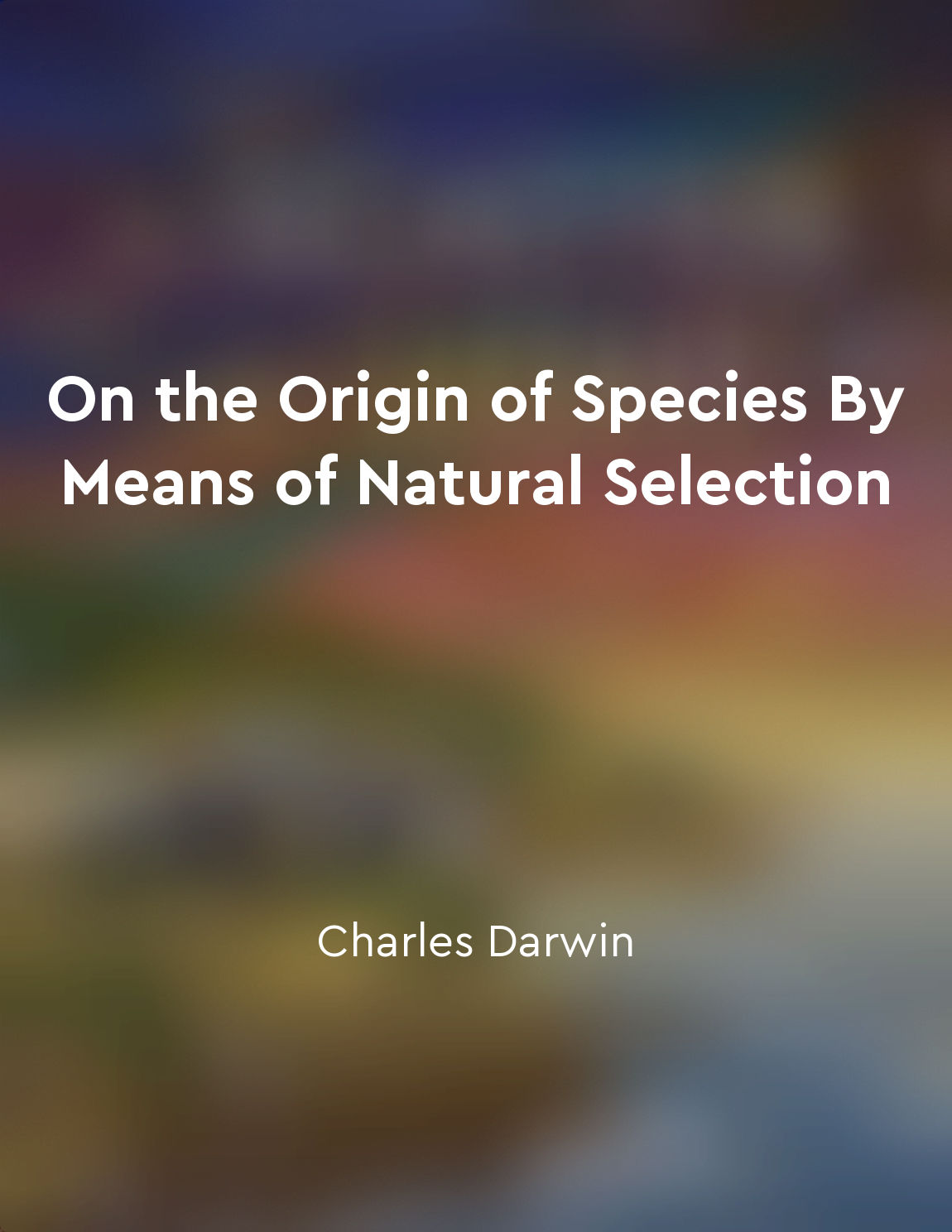Extinction of less adapted species from "summary" of On the Origin of Species By Means of Natural Selection by Charles Darwin
The process of natural selection inevitably leads to the extinction of less adapted species. As new and better-adapted species arise through the gradual accumulation of advantageous variations, those species that are less well-suited to their environment will struggle to survive and reproduce. This struggle for existence is a fundamental principle of natural selection, as individuals within a population compete for limited resources. Those individuals that possess variations that give them an advantage in this competition are more likely to survive and pass on their advantageous traits to the next generation. Over time, this process results in the gradual improvement of a species' adaptation to its environment. As species become better adapted to their environment, they are more successful in competing for resources and reproducing. This success can lead to the decline of less adapted species, as they are outcompeted by their better-adapted counterparts. In some cases, the less adapted species may become extinct, unable to compete effectively in the changing environment. The extinction of less adapted species is a natural consequence of the ongoing process of natural selection. It is not a deliberate or conscious process, but rather the result of the interaction between organisms and their environment. By favoring those individuals with advantageous traits, natural selection drives the evolution of species and shapes the diversity of life on Earth.Similar Posts
Trade fosters mutual understanding and cooperation
Trade is far more than the simple exchange of goods and services. It is a powerful force that brings people together, fostering...

The human body is made up of multiple systems
The human body is a complex organism that is composed of various systems working together to maintain homeostasis. Each system ...
Building a more sustainable future
The future we seek is one that is sustainable, a future where our actions are in harmony with the earth and all its inhabitants...

Artificial selection in domesticated animals
Artificial selection plays a crucial role in the breeding of domesticated animals. Humans have long been engaged in the practic...
The complexity of ecosystems
Ecosystems are richly complex entities, teeming with a multitude of interactions between living organisms and their physical en...
The moral sense is evidence of a godly nature
The moral sense, that inner compass guiding our decisions of right and wrong, is a powerful indicator of a godly nature within ...
Altruistic behavior can be genedriven
The idea that altruistic behavior can be gene-driven is a central theme in the exploration of human nature. Genes are the funda...
Key concepts in evolutionary theory continue to evolve
Evolutionary theory stands as a towering edifice in the intellectual landscape of science. Its core principles have remained fi...
